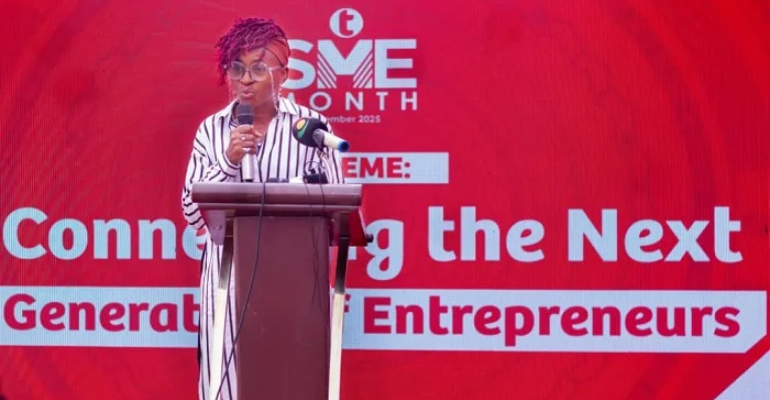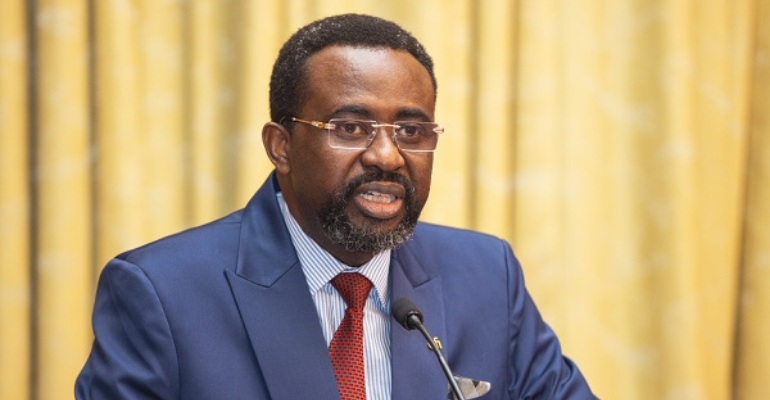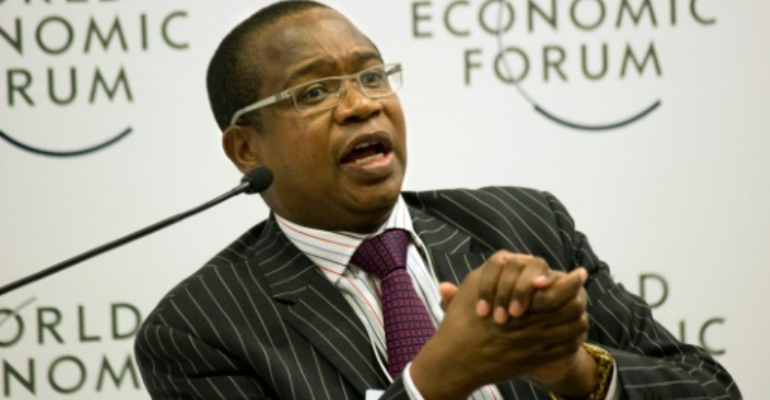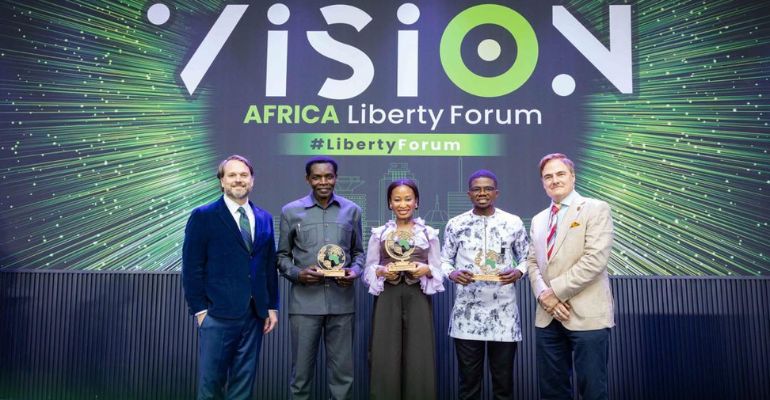Introduction
Small and Medium Enterprises (SMEs) remain the backbone of Ghana’s economy, contributing to almost 70% of the country’s GDP and providing employment opportunities for more than 80% of the population (ISSER, 2023). According to the Ministry of Finance, about 92% of all businesses in Ghana fall within the SME category (Ministry of Finance, 2024), highlighting their significant role in national growth and development.
Despite their importance, SMEs continue to face serious challenges. Many SMEs struggle to access funding, lack the necessary digital tools to compete, and often feel burdened by heavy regulations and an unstable economy. It is within this context that Telecel Ghana launched the 8th edition of its annual SME Month under the theme “Connecting the Next Generation of Entrepreneurs”. This initiative goes beyond corporate social responsibility. It represents a private sector-led attempt to fill key gaps in Ghana’s entrepreneurial ecosystem, particularly for women- and youth-led businesses.
Telecel Ghana’s SME Month 2025: Key Activities
This year’s SME Month is centered on digital empowerment, business networking, and inclusivity. For example, the AI-focused workshops and digital tools being introduced go beyond surface-level training. They highlight the growing role of artificial intelligence in areas such as marketing, operations, and customer engagement. These are skills that many Ghanaian entrepreneurs and SMEs still lack.
Networking events like the Red Mixer are very important. In Ghana, many small businesses with great ideas struggle because they don’t know how to meet investors or industry experts. By creating these direct links, Telecel is helping entrepreneurs find the support and opportunities that government policies or traditional institutions often don’t provide.
The focus on inclusivity is also very important. Last year, over 500 women-led businesses adopted Telecel’s digital solutions (Telecompaper, 2025; iAfrica, 2025). This year’s program goes further by broadening the focus to include youth innovation. This matters because women and young entrepreneurs usually face the most difficult barriers when it comes to access to finance, visibility, and markets (World Bank, 2013). By intentionally creating space for these groups, Telecel is addressing inequalities that continue to hold back Ghana’s entrepreneurial ecosystem.
The Importance of Telecel Ghana’s Initiative
Telecel’s SME Month initiative brings several significant benefits to small businesses in Ghana.
First, its focus on digital empowerment through AI workshops and affordable technology products equips SMEs with the tools they need to succeed in today’s digital economy. The program creates access to networks by linking entrepreneurs directly with investors and mentors through platforms like the Red Mixer. This addresses one of the biggest challenges in Ghana’s entrepreneurial ecosystem: limited exposure to funding and guidance.
Another strength of the initiative is the support it gives to visibility and branding. By helping SMEs build professional websites, business emails, and online presence, Telecel enables small businesses to compete on a larger stage and access broader markets. The program also promotes inclusivity by targeting youth and women-led enterprises, helping to reduce barriers that often limit opportunities for these groups.
Finally, Telecel’s leadership demonstrates the critical role of the private sector in national development. By providing innovative, flexible, and scalable solutions, the company complements government policies and contributes to Ghana’s broader goals of digital transformation and job creation.
What Could Hinder Its Progress?
Despite its promise, the digital divide remains a real issue. Many small businesses, particularly those in rural areas, still lack the necessary infrastructure and skills to leverage AI-driven or cloud-based solutions fully.
Telecel Ghana claims its packages are affordable, but for some SMEs that already struggle with very tight budgets, even small additional expenses can feel burdensome.
Moreover, sustainability remains an issue. Whether these initiatives will continue and expand beyond the SME month period or remain a one-time activity is the big question.
Linking the Private Sector to National Policy
The importance of Telecel Ghana’s SME Month cannot be fully appreciated without looking at the broader policy environment. While the private sector is stepping up with innovative solutions, many of the challenges SMEs face are rooted in government policies. Entrepreneurs continue to complain about bureaucratic hurdles, high taxes, limited access to funding, and the lack of a truly enabling environment for business growth.
This is where initiatives like SME Month become more than corporate projects. They indirectly highlight the gaps in public policy. For example, while government programs such as the “YouStart” initiative promised funding for young entrepreneurs, delivery has been slow and inconsistent. Telecel’s approach, on the other hand, demonstrates the efficiency of private-led interventions, less bureaucracy, and more solutions.
It is therefore essential to note that, without easing regulatory burdens and ensuring economic stability, even the most effective private sector initiatives may not reach their full potential.
The Way Forward
To ensure seamless implementation, Telecel Ghana will need to strengthen partnerships with other ecosystem players, including government agencies, CSOs, and think tanks. Collaboration could help expand digital infrastructure into underserved areas, reduce costs for SMEs, and provide continuous capacity building. Additionally, Telecel could leverage policy advocacy, by partnering with free-market thinktanks like ACEYE who already push for policies that promote entrepreneurial freedom. Such partnerships would give Telecel a stronger voice and help make sure the actual needs of small businesses are reflected in national policy discussion.
Conclusion
Telecel Ghana’s SME Month 2025 is more than a corporate event; it is a bold statement about the future of entrepreneurship in Ghana. By blending digital skills training, AI readiness, and practical business tools, it addresses some of the most pressing challenges facing SMEs. However, for this initiative to achieve its full potential, it must be matched by supportive government policies that reduce the barriers holding back entrepreneurs. SMEs are already the backbone of Ghana’s economy, but with the right mix of private innovation and public policy reform, they could become the engine that propels Ghana into a truly digital, inclusive, and resilient economy.
References
ISSER. (2023). State of the Ghanaian Economy Report 2022. Institute of Statistical, Social and Economic Research, University of Ghana.
https://isser.ug.edu.gh/index.php/node/312
Ministry of Finance. (2024). SMEs behind strong half-year economic growth – Dr. Amin Adam. Accra: Government of Ghana.
https://mofep.gov.gh/news-and-events/2024-10-10/smes-behind-strong-half-year-economic-growth-dr-dr-amin-adam?
GCB Bank. (2024). SME Financing Report. Accra: GCB Bank.
Visit GCB Bank SME Page: https://www.gcbbank.com.gh/downloads/reports?format=html
Telecompaper (2025). Telecel Ghana runs eighth annual SME Month.
https://www.telecompaper.com/news/telecel-ghana-runs-eighth-annual-sme-month–1547169?
iAfrica (2025). Telecel Ghana launches SME Month 2025 to empower youth and women entrepreneurs with AI and digital tools.
https://iafrica.com/telecel-ghana-launches-sme-month-2025-to-empower-youth-and-women-entrepreneurs-with-ai-and-digital-tools/?
Telecel Ghana. (2025). Connecting the Next Generation of Entrepreneurs – SME Month 2025 Press Release.
https://www.telecel.com.gh
World Bank. (2022). Digital Economy for Africa Initiative (DE4A): Ghana Country Report. Washington, DC: World Bank.
https://www.worldbank.org/en/programs/all-africa-digital-transformation











